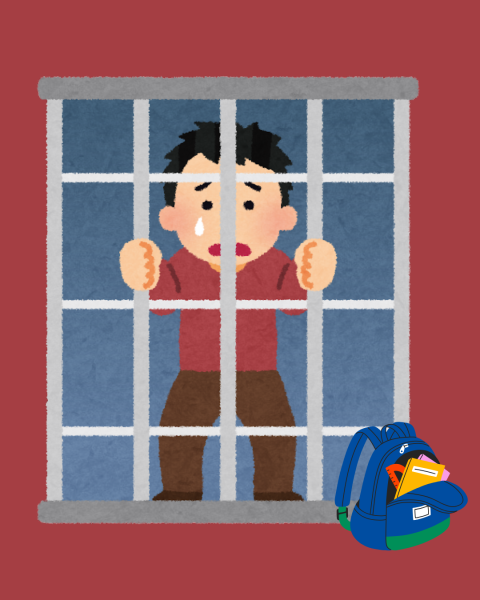
Low literacy rates in Georgia have been a topic of discussion for years, and many people have tried to fix the gap.
The Department of Justice did an investigation into this in 1993 coming to the conclusion that a child failing in school could indicate that they would have less success in the future.
According to Atlanta News First, only one in three fourth graders read proficiently in Georgia. Children not knowing how to read leads to adults not knowing how to read.
Georgia fourth graders have not reached reading proficiency since 1998.
“It’s 100% a link,” said Jud Smith, a Barrow County Sheriff. “If you don’t have literacy and you don’t have an education, you are walking down a path of recidivism and criminal activity.”
In 2024, Georgia students achieved the score of 214 in reading proficiency when the proficiency level is 238, according to a graph from National Assessment of Educational Progress, or NAEP.
“Although I wasn’t really surprised about what I read in the article, it still made me sad to read,” said Meryl Black, a freshman English major. “I think more emphasis needs to be put on learning to read outside of a school environment, like offering certain programs at government institutions, like a library or community center, to encourage reading outside of school. I think these programs should also stress to parents how important it is to read to or with your kid developmentally wise.”
According to the State of Literacy in Georgia in 2023, one in 10 Georgia adults have low literacy skills and adults that drop out and do not earn a high school diploma are 1.9 times more likely to be unemployed.
The State of Literacy in Georgia is a report by the Governor’s Office of Student Achievement that was conducted in 2023 to research where people with low literacy skills stood in Georgia. For example their job status, job industry and taking a close look at how other states worked to improve literacy.
“I’ve seen in my personal life that low literacy has led to crime,” said Stephanie Vasquez, a sophomore Music Therapy major. “Peers of mine that did poorly in school and were never properly educated ,such as dropping out at 16, went down bad paths. One of them is in jail right now in Georgia.”
High school dropouts are 3.5 times more likely to be arrested according to Literacy Mid-South.
According to the National Adult Literacy Survey, 70% of all incarcerated adults cannot read at a fourth-grade level.
People with a low ability to read and write are more likely to turn to crime due to the inability to do everyday tasks at a job or get a job without a diploma. Those who can get a job work in industries such as construction, retail, manufacturing and food service.
“Abraham Lincoln learned to read in a cabin with a candle light,” said Jennine Labuzan-DeLane, a recruitment coordinator for the University of Georgia. “So it doesn’t take all these resources to learn how to read. It takes focused attention, at least 30 minutes a day, starting in these preschools where A is at and B is but, and you making little Johnny connect these sounds.”
Those with little to no income are more prone to crime as a means of survival. Once they get arrested once they are most likely to reoffend due to loss of a job or no one willing to hire them due to them having a criminal record.
“I think adult literacy programs should also be much more accessible, especially to those who are incarcerated,” Black said. “I think literacy lessons should be mandatory in prisons for anyone who isn’t fully literate. I think with these steps we can better help combat the low literacy to incarceration rates.”
Some things that may contribute to low literacy are chronic absentism, summer learning loss and family-oriented stressors such as family mobility, hunger, housing insecurity and toxic stress should be addressed.
“Now, as a mom and parent, I know and teacher that even at the preschool level, you can get your little literacy kits, you know, from the little educational stores, you know, got the little math and science kids, the literacy kits,” Labuzan-DeLane said. “If you just give them 15, 20 minutes of that every day, they’ll learn how to read. Don’t take no big budget.”
Doing a little bit of reading a day can help students stay encode the sounds of letters and words into their brains for a long time. It is the same with writing constant repition allows for the brain to create new knowledge pathways that can be accessed later for reference when encountering new information.
Georgia is working on finding ways to improve literacy among students and adults to lower the incarceration rate.

